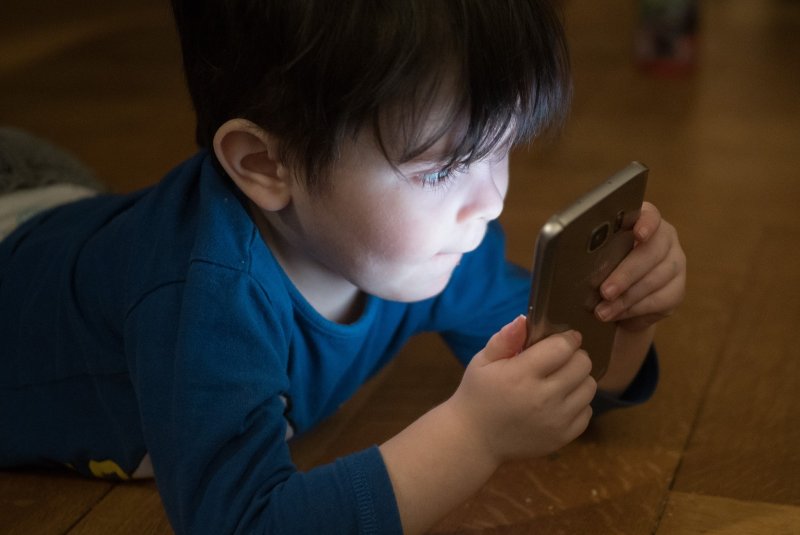
As children spend more time using screen-based devices, such as tablets, phones and computers, their risk for behavioral problems and mental health disorders increases, according to a new study. Photo by Andi Graf/Pixabay
March 16 (UPI) -- Children who spend more time on using handheld devices and computers or watching television are more likely to exhibit behavior problems such as aggression, difficulties with attention, anxiety and depression, an analysis published Wednesday by JAMA Psychiatry found.
In the review of data from 87 studies with nearly 160,000 participants age 12 years and younger, more screen time during the day was associated with an up to 20% higher risk for behavior problems, the data showed.
The behavior problems exhibited by children with increased screen time included aggression and "inattention," the researchers said.
Children who spent more time using devices with screens, including phones, tablets, computers and televisions also were more likely to display symptoms of anxiety and depression, according to the researchers.
RELATED Study links kids' screen time during pandemic with rise in mental, behavioral issues
"When children under 12 are on screens for too many hours in a day, it may be associated with some behavioral problems, such as aggression or sadness," study co-author Sheri Madigan told UPI in an email.
However, the issue is not merely the "duration of screen viewing time" but also "how children engage with screens," said Madigan, Canada research chair in determinants of child development at the University of Calgary.
In 2020, the American Academy of Pediatrics relaxed its screen time guidelines to focus more on the quality of screen time as opposed to the duration.
RELATED Teen screen time doubled during pandemic, making mental health worse
The new guidelines encouraged parents, caregivers and educators to engage with children on their consumption of screen-based media and promote "meaningful" use, Madigan and her colleagues said.
Positive or meaningful uses of screen devices include those that involve education, keeping up with news and current events or connecting with friends and family, the researchers said.
Even "watching a movie with their siblings or gaming with friends online" can be "meaningful," in moderation, Madigan said.
RELATED Screen time rises, physical activity dives for U.S. kids, teens during pandemic
"When children use screens as a means of connecting with others, the association between screen time and children's behavioral problems has been found to be weaker," she said.
Still, recent studies have found that increased screen time, particularly during the COVID-19 pandemic, has led to a rise in mental health disorders and behavioral problems among young people in the United States.
Increases in screen time have also been linked with declines in physical activity in earlier research.
"When children are watching screens for long durations, it is believed that this leaves less time to engage in other activities that we know are important for healthy development, including physical activity, sleep and off-line activities such as reading and homework," Madigan said.
Increased screen time can also adversely impact "positive social interactions with others," she said.
For this analysis, Madigan and her colleagues analyzed data from 87 studies conducted in multiple countries, including the United States.
All of the included studies were published before the COVID-19 pandemic began, according to the researchers.
"Many pandemic-related studies have reported that children's recreational screen time has doubled during the pandemic," Madigan said. "So, we may actually see associations get stronger as the pandemic continues."
No comments:
Post a Comment